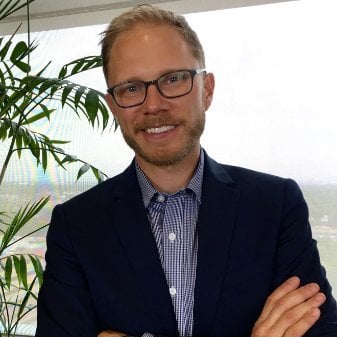How To Increase Cancer Patients And Their Families' Use Of Psychosocial Services
Date Posted: miércoles, enero 18, 2023
Dr. Timothy Sannes
Having cancer is a very distressing time. It’s not only upsetting for the patient, but also for their loved ones and family. Recent research has found that despite mandated screenings for psychosocial services, many of these patients do not pursue them, according to Timothy Sannes, PhD.
Dr. Sannes, a clinical health psychologist who focuses primarily on patients with cancer, said that even though the American Cancer Surgeon’s Commission on Cancer mandates patient screening, many patients do not follow through with referrals to psychosocial services. It’s even harder to get family members to get extra support.
It doesn’t have to be this way. Dr. Sannes believes that the way in which oncologists discuss psychosocial services as well as when they begin talking about them, can have significant impact. The Collaborative Care Model, an evidence-base model, which coordinates supportive care around patients’ individual needs has shown significant improvement in this area and he believes there is opportunity to do more.
Dr. Sannes said the way in which oncologists describe supportive services is critical, hopefully to normalize that caring for one’s emotional well-being during cancer treatment goes hand-in-hand with taking care of one’s physical well-being. Even with all of the progress we have made with integrating behavioral health into healthcare, there is still stigma and personal barriers to patients’ follow through to getting more support. He has not only co-authored many studies on how psychological factors are related to outcomes in cancer, but he plans to present best practices for discussing psychosocial services to oncologists with his arrival to UMass. By working collaboratively with the oncology team, patients are more likely to accept the psychological support that is crucial to their well-being while treating their cancer.


